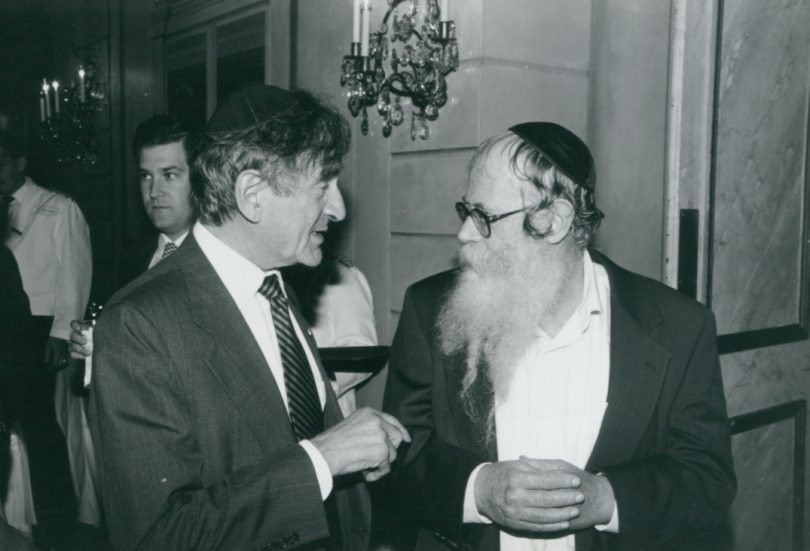The day after Rabbi Levi Yitzchak of Berditchev conducted his Passover Seder on a particularly exalted plane, he asked a question of heaven as to whether anyone had conducted a Seder superior to his.
He was told that indeed a Jewish porter, a simple man named Chaim Treger, had done so.
Rabbi Levi Yitzchak searched for the man, and when he found him, questioned him about his Seder.
The man replied, “Rabbi, I will tell you the truth. I heard that it is forbidden to drink vodka on Passover for eight days, so the day before I drank enough for eight days until I fell asleep.
In the evening my wife woke me up and said, ‘Are you a Gentile that you don’t make a Seder?’
I got up and saw that the table was set with a white tablecloth, wine, and holiday food.
I poured a glass of wine and then another glass, and I told my wife, ‘You know that I am a simple Jew and I can’t tell you the entire story of the Exodus, but we were slaves in Egypt. They tortured us and oppressed us until God took us out.
And now too we have great troubles, but God will save us from them as well!’ And then I ate and drank wine and fell back asleep.”
Rabbi Levi Yitzchak acknowledged that this man’s Seder had been superior to his own.
Although Rabbi Levi Yitzchak’s mystical intentions were certainly higher, the porter’s intent was apparently more complete, for he put all of what he knew into it.
On another occasion, Rabbi Levi Yitzchak conducted a search for someone to blow the shofar on Rosh Hashanah.
A number of men demonstrated their knowledge of the mystical meditations that are supposed to enhance shofar blowing, but he was not satisfied.
One day, a simple man came, and when Rabbi Levi Yitzchak asked him what he would have in mind when he blew the shofar, the man told him, “Rabbi, I have four daughters of marriageable age. When I blow the shofar, I will think, ‘Master of the world, I do Your will and blow the shofar, so please do my will and help me marry off my daughters.’ ”
Rabbi Levi Yitzchak stood up and said, “You will blow the shofar in my synagogue!”
Of prime importance in a person’s intention is not his intellectual level, knowledge, or even spiritual preparedness but the degree of his intensity as he performs the mitzvah. That makes all the difference.
Rabbi Adin Steinsaltz

